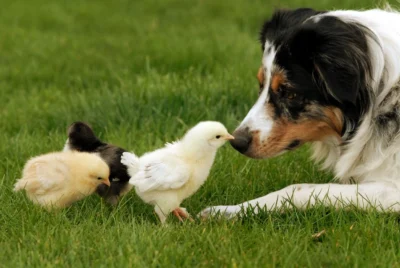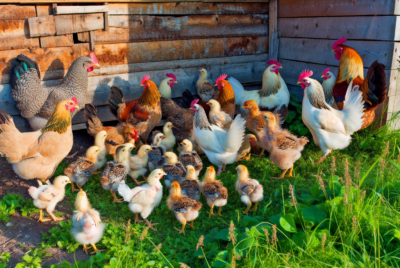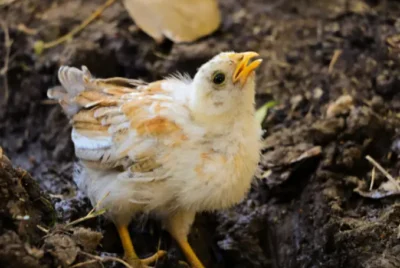Creating the Perfect Chicken-Friendly Garden: 11 Top Tips
For many garden enthusiasts, incorporating chickens into their lush, green spaces seems like a harmonious blend of nature. Visions of free-ranging hens among flower beds and vegetable patches are undeniably idyllic. However, reality often paints a different picture. Chickens are notorious for scratching up fresh plantings, feasting on your prized tomatoes, and leaving their mark, quite literally, all over your lawn.
So, how do you strike the perfect balance between maintaining a beautiful garden and providing a haven for your feathered friends? Is it even possible to have the best of both worlds? Dive into our top tips for creating a chicken-friendly garden that caters to both your passions and the needs of your flock.
Tips for a Chicken-Friendly Garden
Designate Areas for Dust Bathing
Chickens naturally indulge in dust baths to rid themselves of mites and to maintain feather health. Providing a suitable spot prevents them from uprooting delicate plants. A mix of sand, diatomaceous earth, and possibly some dried herbs can make the spot even more enticing, ensuring they prefer this designated area over others.
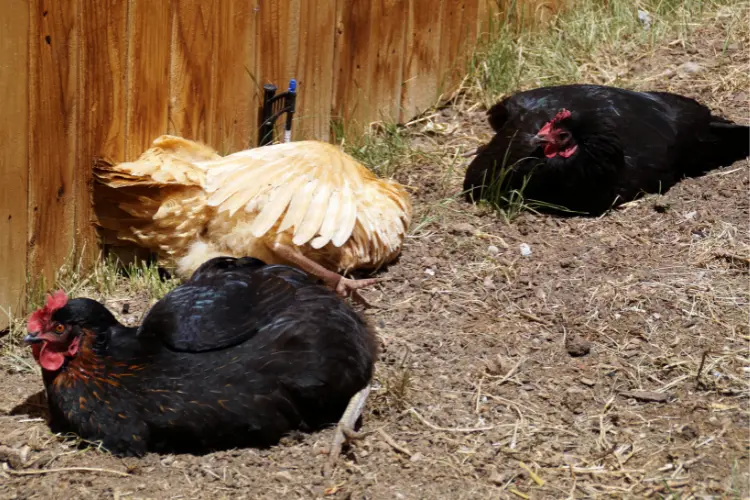
Keep Hens on the Edge
Chickens naturally gravitate towards edges for their sense of safety. Establish pathways and clear areas around the garden’s perimeter, enticing chickens to mainly frequent these zones, thus protecting central garden beds.
Avoid Toxic Plants
Some plants can be toxic to chickens when ingested. For instance, plants like rhubarb leaves, foxglove, and nightshade species contain substances harmful to poultry. Familiarize yourself with toxic plant lists and ensure they are either not present in your garden or are placed in areas where chickens cannot access them.
Safeguard Your Vegetation Using Protective Barriers
Using structures like chicken wire cages, mesh tunnels, or even bird netting over raised beds can deter chickens. Such barriers prevent chickens from scratching up seeds or eating young shoots, especially during planting seasons.
Moreover, chickens love to eat what we love to eat, most of the time. So, you can garden with chickens but the best plan is to secure your garden so that chickens can visit only when you allow. – Inspire Farms
Multi-layered Planting
By having taller plants or shrubs shield smaller, more vulnerable plants, you can protect them from being trampled or eaten. The taller plants act as a barrier, guiding chickens away from the delicate plants beneath or behind them.
Pathways and Distractions
Creating clear pathways and scattering treats like seeds, mealworms, or fruits encourages chickens to follow these routes. Over time, they recognize these paths as primary foraging spots, especially if treats are consistently found there.
Natural Barriers
Planting thick shrubs, tall ornamental grasses, or dense ground covers can restrict chicken movement. These plants can act as living fences, guiding chickens along desired paths and away from vulnerable spots.
Add Strong Ground Designs
Patterns or designs on the ground using materials like gravel, bricks, or stepping stones can deter chickens. They typically prefer scratching softer ground, so such designs act as no-scratch zones.
Ensure Safety from Potential Predators
Beyond garden protection, it’s essential to safeguard chickens from threats like foxes, raccoons, or birds of prey. A secure perimeter fence, possibly electrified or with a top netting, is vital.
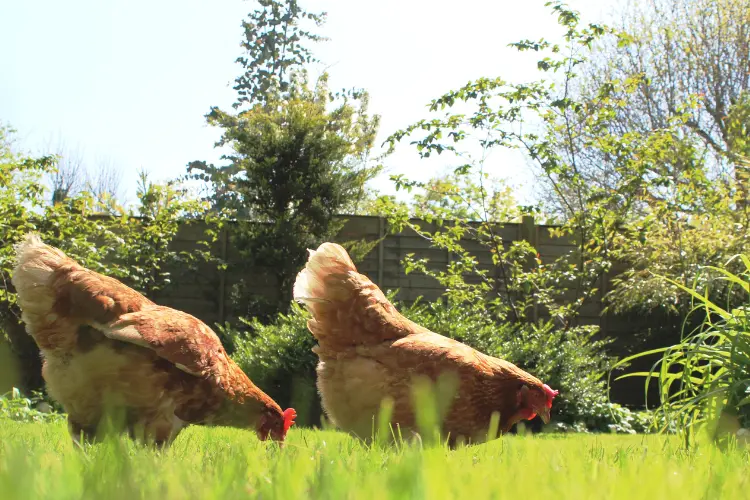
Grow Your Chickens Something Nice to Eat!
Designate a garden section specifically for chicken-friendly plants. Consider crops like kale, spinach, or corn which they’ll enjoy, keeping them busier in these areas and away from others.
Remember, No Vegetation is Entirely Resistant to Chickens
Even with precautions, chickens will be curious and may occasionally disrupt areas you wish they wouldn’t. Be prepared for some level of disturbance and adjust strategies as you observe their behavior.
Read also: How to Build a Safe Chicken Run
Some Edible Plants That Are Safe for Chickens
- Peas
- Bell peppers
- Pumpkins
- Squash
- Basil
- Oregano
- Wormwood
- Rosemary
- Tarragon
- Marjoram
- Cilantro
- Lavender
- Mint
- Catnip
- Beets
- Broccoli
- Brussels sprouts
- Cauliflower
- Cabbage
- Carrots
- Bay leaves
- Chamomile
- Fennel
- Parsley
- Asparagus
- Cucumbers
Possible Challenges to Look For
Broody Hens
When hens go broody, their primary goal becomes hatching eggs. They’ll often find the most secluded, cozy spot – which might just be amid your plants. They can trample or damage vegetation while creating their perfect nest.
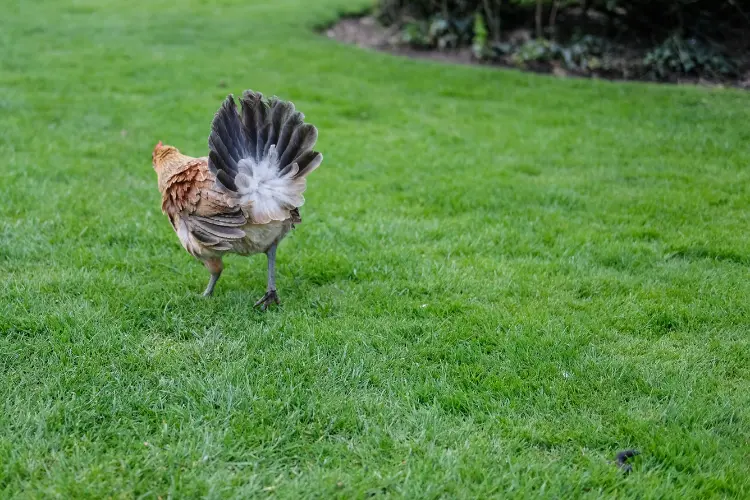
Regularly monitor for broody behavior and try to redirect them back to their nesting boxes. Using nesting herbs like lavender can make the nesting boxes more inviting. If a hen insists on being broody in the garden, consider setting up a separate space for her to nest safely without disturbing your plants.
Hen and Chick Sets
Mother hens are fiercely protective of their chicks. The garden, with its labyrinthine arrangement of plants, can be a daunting place for chicks. They can easily get lost, leading to distress calls from both mother and chick. Moreover, chicks are more vulnerable to garden predators.
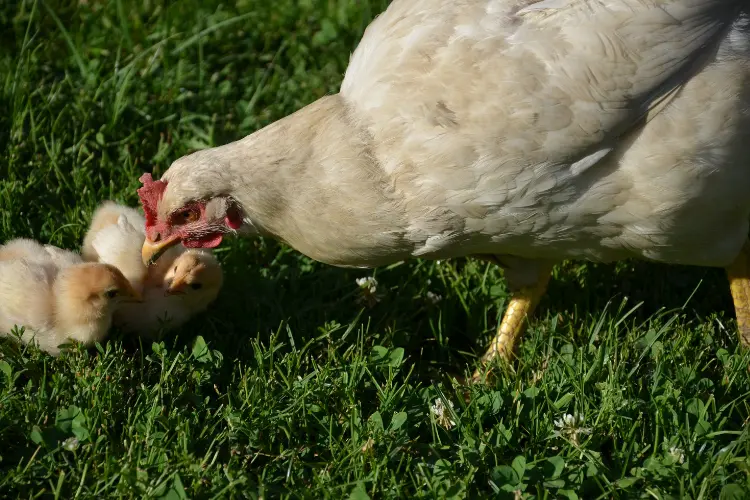
Until chicks are of a more independent age, it’s best to keep them out of dense garden spaces. This protects your plants, the chicks, and your ears from the cacophony of distressed chicken communication sounds.
Conclusion: Creating the Perfect Chicken-Friendly Garden
Making a garden that’s good for both chickens and plants needs careful thinking. Remember, it’s okay if chickens sometimes mess things up a bit – they’re curious! By using these top tips, you can create a garden where chickens and plants can be friends.
If you’re a fan of garden vibes and authentic farm experiences, consider a visit to Scurlock Farms. Dive deep into the serene environment and embrace the farm stay!


